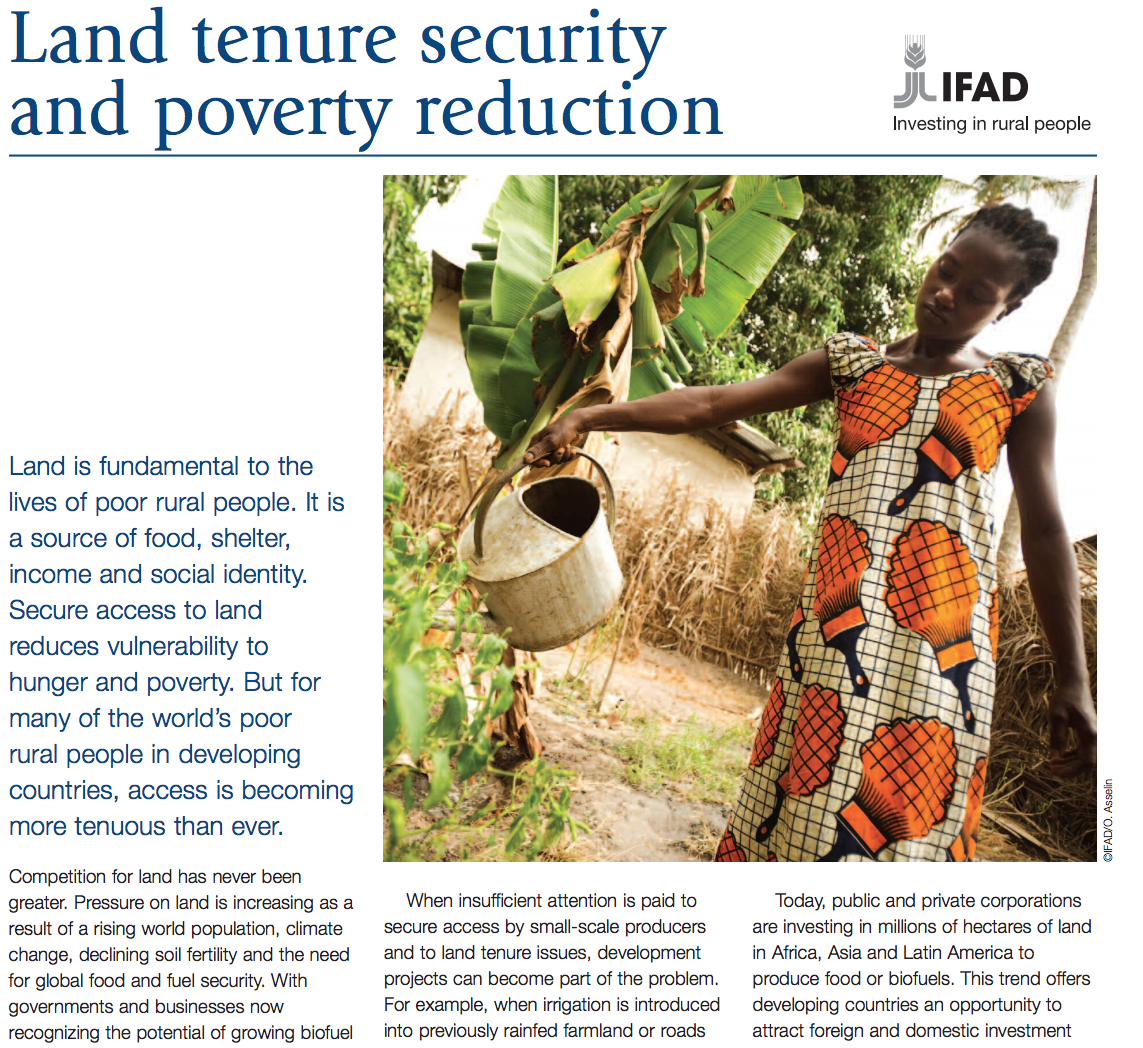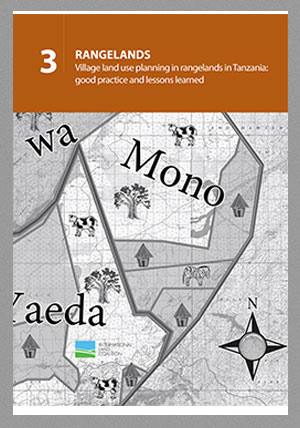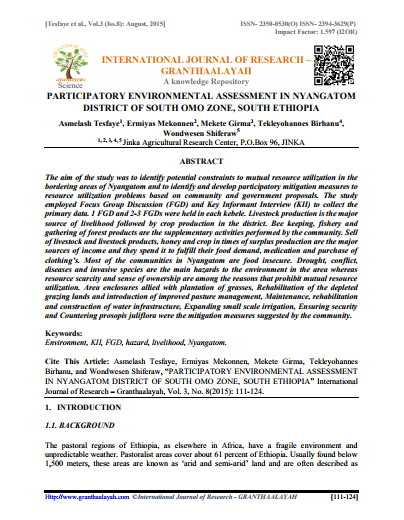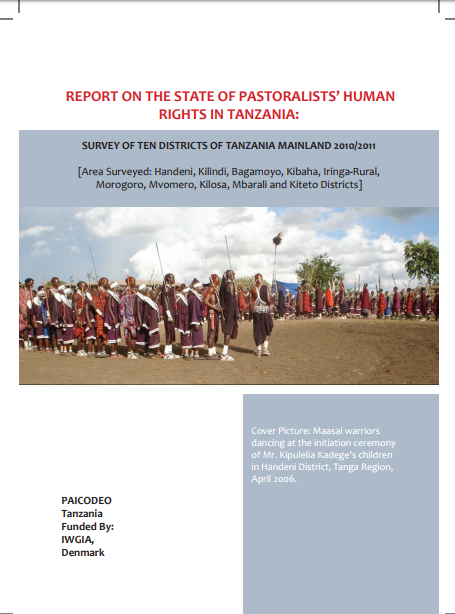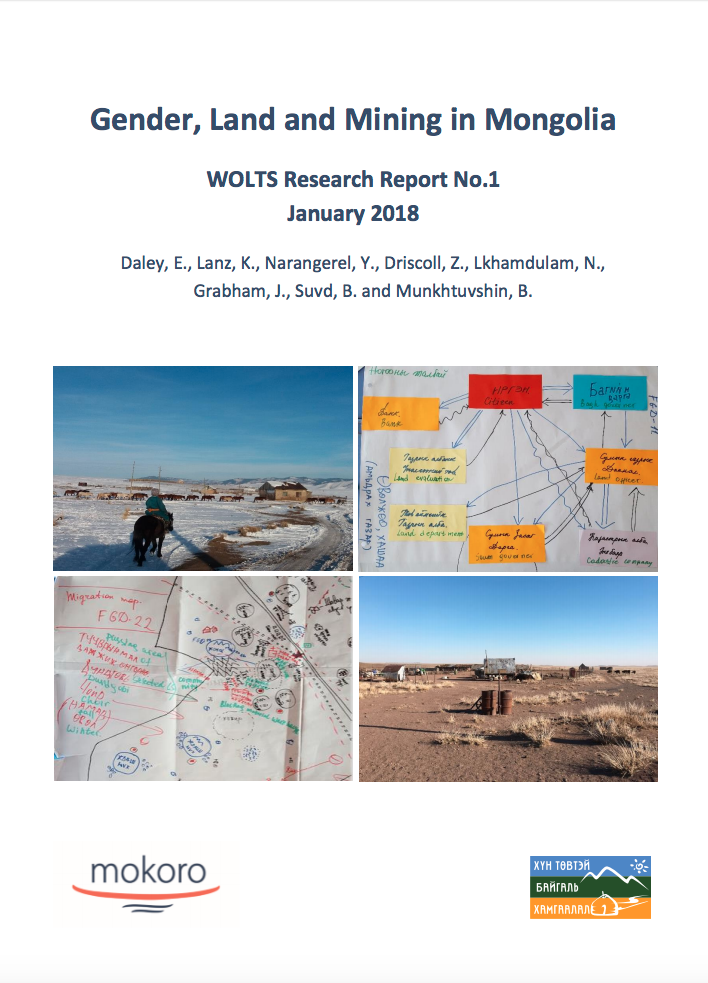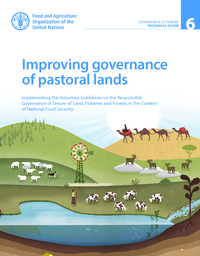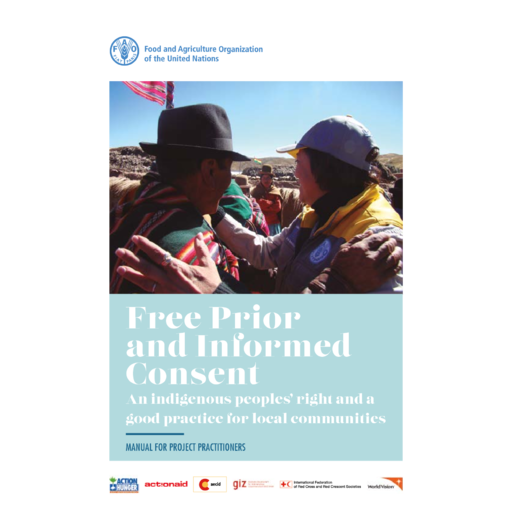Land tenure security and poverty reduction
Land is fundamental to the lives of poor rural people. It is a source of food, shelter, income and social identity. Secure access to land reduces vulnerability to hunger and poverty. But for many of the world’s poor rural people in developing countries, access is becoming more tenuous than ever.

